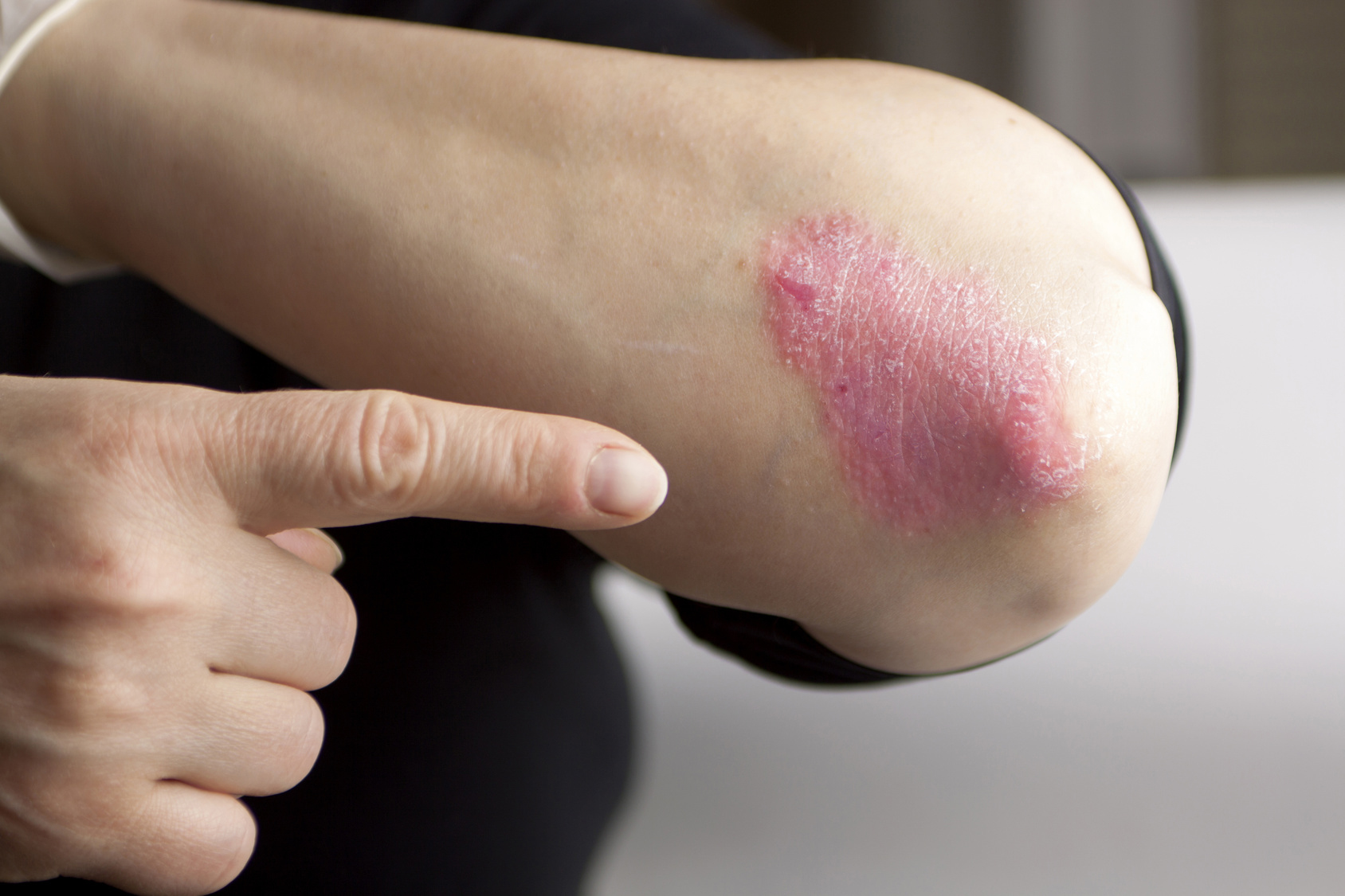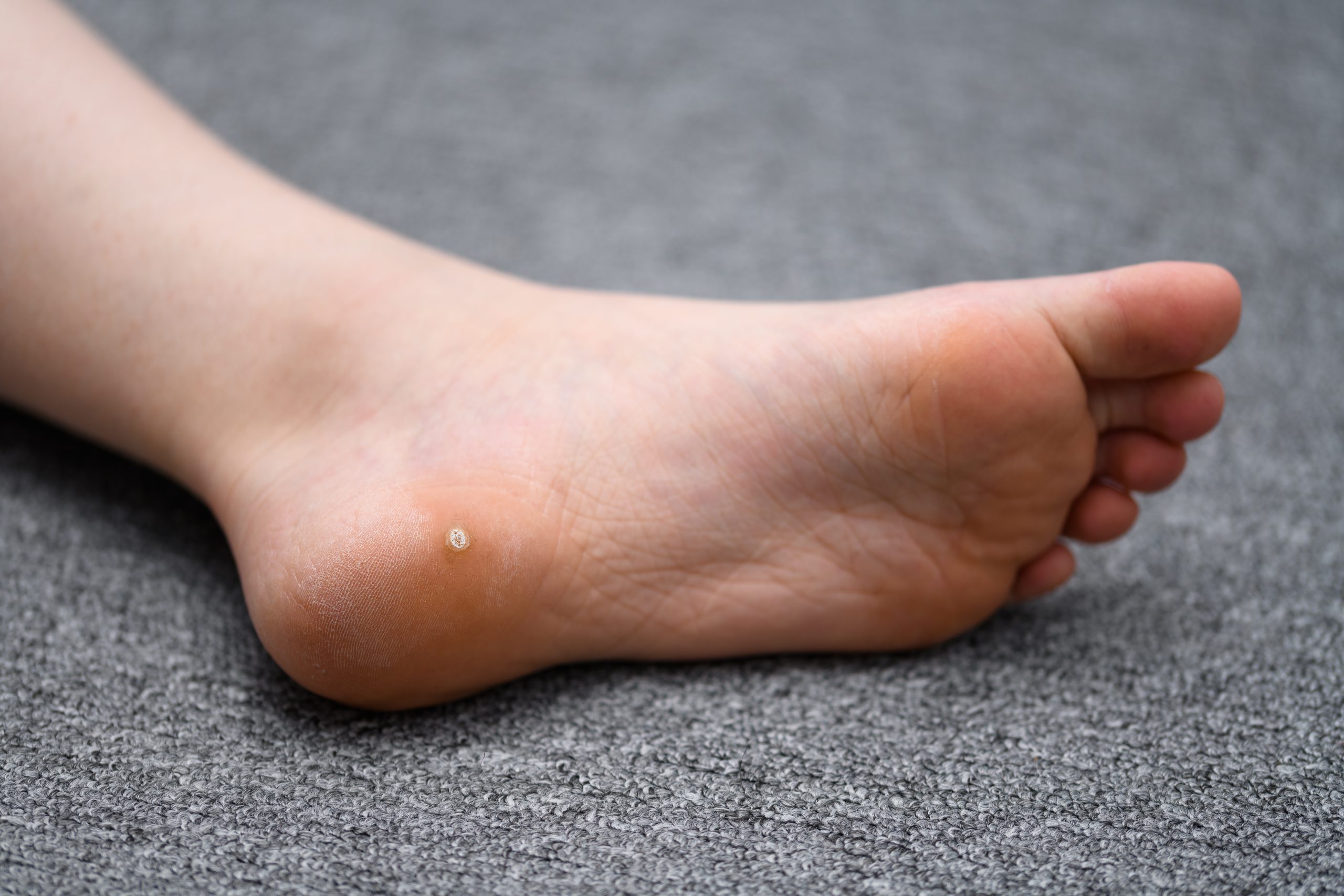Psoriasis is a common skin condition that occurs when the skin multiplies ten times faster than it should [1].
Psoriasis is a form of autoimmune disorder, in which the immune system mistakenly attacks healthy tissues in the body [2, 3].
The condition comes with red, scaly patches that are painful and itchy all over your body.
Although there’s no cure for this disease, there are times when it goes into remission and does not exhibit any symptoms.
You may manage and tone down psoriasis flare-ups by using some practical and effective natural remedies.
This article reviews some evidence-based home remedies for psoriasis and how to use them.
10 Home Remedies for Psoriasis Treatment-Backed by Evidence
1. Licorice
Commonly cultivated in Turkey, Greece, and some countries in Asia, licorice root is a popular herbal remedy for sore throat, bronchitis, ulcers, and other types of infections [5].
A 2000 study lists licorice root as one of the traditional medicines used for treating psoriasis [6].
The extract of this root can be applied topically, or taken orally [6].
Its active compound glycyrrhizin is responsible for its potent anti-inflammatory effect [7].
After it is converted into glycyrrhizic acid by the body, it works to inhibit the pro-inflammatory leukotrienes and prostaglandins [7].
Its anti-inflammatory effects are comparable to those of cortisone [7].
In fact, one study has proven that adding 2 percent of glycyrrhizic acid to topical corticosteroids improved their efficacy [7].
While topical corticosteroids are considered a better solution for atopic dermatitis, glycyrrhizic acid was more effective in treating chronic skin conditions, including psoriasis [7].
It’s also a suitable treatment for other skin disorders that cause itchiness and inflammation [7].
On top of all these, licorice has fewer side effects, but it should still be avoided by those who suffer from high blood pressure [7].
How to use licorice root for psoriasis cure:
- Boil 2 teaspoons of licorice root in a pot of water.
- Reduce heat and simmer for 40 minutes.
- Let it cool.
- Soak a cloth and apply it to the skin three to four times a day.
2. Glycerin
Researchers from the Medical College of Georgia found that glycerin can help in the management of psoriasis and other skin conditions, reports Science Daily.
As a natural humectant, glycerin works by attracting and retaining moisture into the skin.
As you probably know, dryness can make skin problems like psoriasis worse.
Keeping the skin hydrated and moisturized helps ease the pain, inflammation, and itchiness.
At the same time, glycerin promotes proper skin functioning and overall skin health.
How to use glycerin to manage psoriasis:
- Apply generously on the skin.
- Leave it on for one to two hours before rinsing.
- Use three times a day for four to five weeks.
3. Oatmeal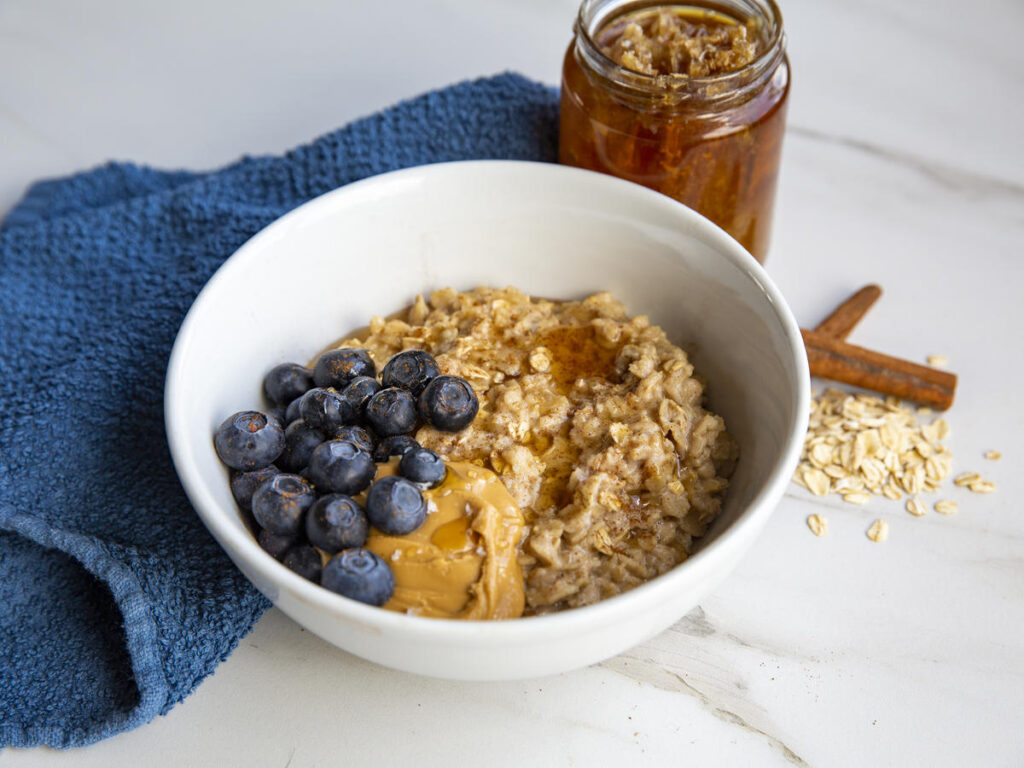
Thanks to its soothing and moisturizing effects on the skin, oatmeal can help tone down the inflammation caused by psoriasis.
Colloidal oatmeal, which has long been used in dermatology, is listed as one of the practical traditional remedies for psoriasis, eczema, and many other types of skin disorders [8].
Oatmeal contains avenanthramides, which contribute to its anti-inflammatory and antihistaminic properties [8].
These compounds have been found to halt the release of histamine and pro-inflammatory cytokines, and at the same time, suppress the activities of nuclear factor kappaB [8].
The saponins in oatmeal, meanwhile, provide it with a cleansing action.
Soaking in an oatmeal bath can help loosen the scaly patches and reduce itching [9].
Even those with highly sensitive skin won’t have a problem using oatmeal.
You may add oatmeal to your bath water and soak for 30 minutes to see improvement in the condition.
4. Aloe Vera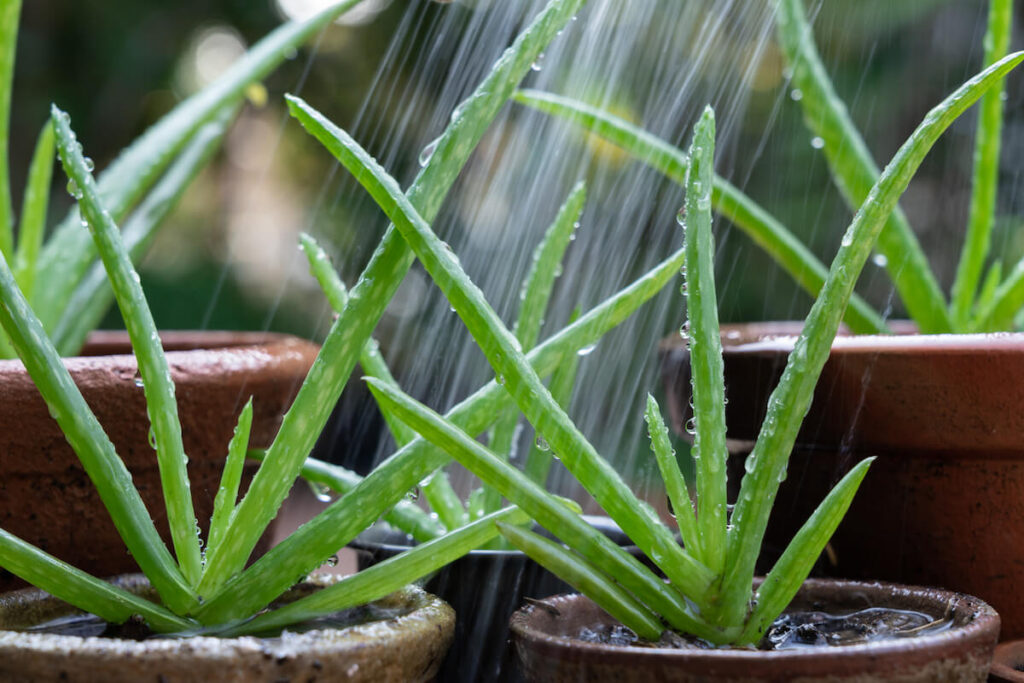
A tropical succulent plant that grows in Africa and Asia, aloe vera is touted for its antimicrobial and antifungal properties [10].
For centuries, it has been widely recognized for its medicinal and skincare benefits [11].
In fact, the ancient Egyptians referred to aloe vera as a “plant of immortality” [11].
It’s also highly effective as an anti-inflammatory, which makes it a suitable treatment for inflammatory skin conditions such as psoriasis.
One of its enzymes called bradykinesia significantly tones down the swelling of the skin after topical application [11].
A 1999 study in the British Journal of General Practice sees aloe vera’s potential as a treatment for psoriasis [12].
While it’s generally safe for topical use, there have been a few reports of adverse reactions from aloe vera.
Sometimes, it causes a burning and stinging sensation or redness [11].
This is due to an allergy to the anthraquinones that can be found in aloe vera [11].
To make sure you’re not allergic, test it on a small area first before applying it to the whole body.
How to use aloe vera gel on psoriasis flare-ups:
- Break off the leaf and extract the gel.
- Apply on a small part of your skin.
- Wait for one hour.
- If there’s no redness or swelling, apply to other affected areas of the skin.
- Leave it on for several hours.
- Do this three times a day for two to three weeks.
RELATED: Aloe Vera For Heat Rash: 5 Reasons to Try Now!
5. Apple Cider Vinegar
In the natural health community, apple cider vinegar is the most widely used type of vinegar.
Naturalists say that the use of this vinegar can result in many kinds of benefits such as weight loss and lower blood sugar levels, among others.
It’s also a boon for those who suffer from psoriasis.
Experts name apple cider vinegar one of the most popular alternative remedies for psoriasis.
That’s because this vinegar extracted from fermented apples is a great way to restore the proper pH balance of the skin.
Moreover, it is chock-full of vitamins and minerals that promote skin health.
How to use ACV for psoriasis flare-ups:
- Mix a cup of ACV with 3 cups of warm water.
- Soak a cloth in the mixture.
- Apply on the skin.
- Repeat several times during the day.
- Do this remedy for one to two weeks.
RELATED: How to Use Apple Cider Vinegar for Eczema Relief
6. Turmeric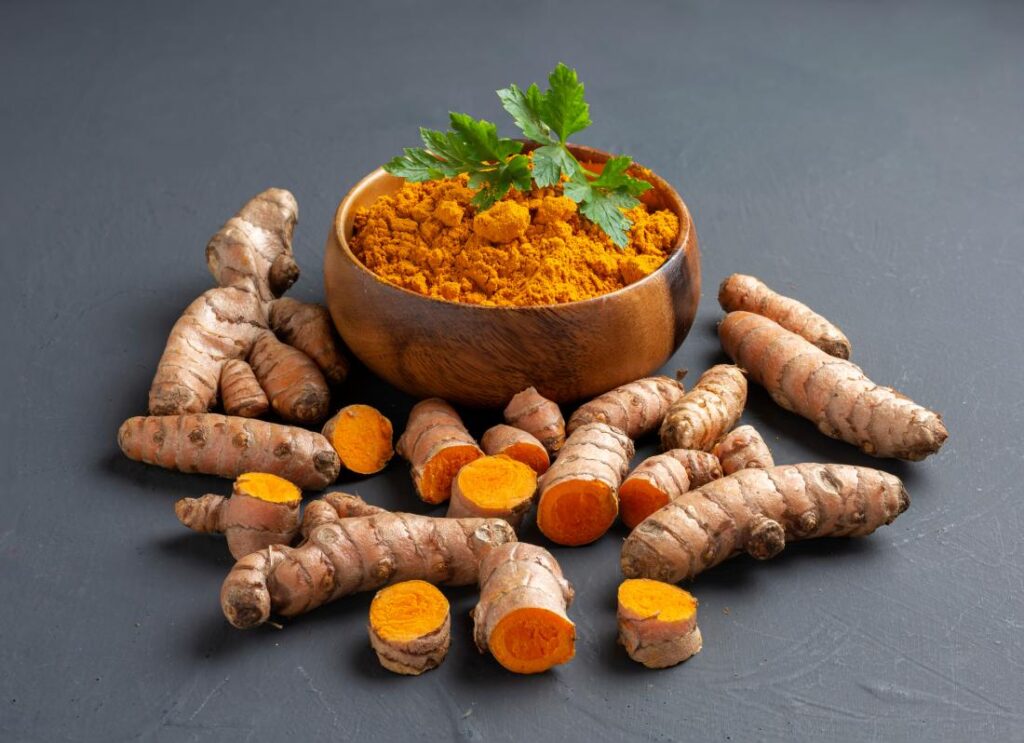
Turmeric is being referred to as the “queen of spices” for the multitude of benefits that it has for one’s health.
There’s a long list of conditions that can be treated with this spice, and these include arthritis, heartburn, Crohn’s disease, irritable bowel syndrome, parasitic infection, urinary bladder inflammation, and gum disease.
As you will notice, many of these are related to inflammation.
In a 2013 study published in the AAPS Journal, psoriasis is listed among the numerous inflammatory diseases that can be treated with turmeric [13].
The primary anti-inflammatory agent in turmeric is curcumin, the same compound that gives it a yellow pigment [14].
Apart from successfully toning down the swelling, there are other ways curcumin helps psoriasis sufferers.
Curcumin is also said to prevent excessive multiplication of the skin by inhibiting phosphorylase kinase, an enzyme that promotes skin cell growth [15].
According to dermatologists, the application of curcumin and black pepper on the skin for four weeks can significantly reduce the severity of itching, and make people with chronic itching feel much better.
What You’ll Need:
- 1 teaspoon of turmeric powder
- 1 glass of hot milk
- 1 tablespoon of turmeric powder
- 1 tablespoon of black pepper
- 1 teaspoon of water
Recommended Directions:
- Dissolve one teaspoon of turmeric powder in milk.
- Drink every day for two to three weeks.
- Combine one tablespoon of turmeric powder and black pepper.
- Add water and mix well.
- Apply to affected areas of the skin.
- Do this every day for 14 weeks.
RELATED: 12 Anti-Inflammatory Herbs That You Should Know About
7. Cool Compress
Itchiness is one of the most unpleasant symptoms of psoriasis.
A quick and simple way to relieve itchiness is to make use of a cool compress, which is one of the natural remedies recommended by doctors.
A cold compress may help by decreasing swelling and soothing the skin.
The process by which it works is quite simple to understand.
First, it slows down blood flow to the affected area so that pain and inflammation are diminished.
Then, it also slows down circulation to further decrease muscle spasms. Cold therapy is safe to apply on the skin, but you should wrap ice first with a cloth or towel.
Do not apply directly to your skin.
8. Epsom Salt
Magnesium sulfate, more popularly known as Epsom salt, refers to an inorganic salt named after a salt spring at Epsom in England.
These salts can be absorbed through the skin, and cause significant analgesic effects.
An Epsom salt bath has long been used to ease muscular tension, joint inflammation, abdominal cramps, sore muscles, and other painful conditions.
Health professionals endorse the use of an Epsom salt bath for psoriasis and other skin infections.
Not only does it help soften the scaly patches and reduce itching, but a salt bath can also tone down the stress and anxiety brought about by this chronic skin condition.
RELATED: 11 Effective Home Remedies for Anxiety That Actually Work
9. Olive Oil
A staple in the Mediterranean diet, olive oil is packed with beneficial monounsaturated fatty acids, antioxidants, and other essential nutrients.
It is one of the factors believed to be the reason for the longer life expectancy of people from the Mediterranean regions.
This oil has been linked to a lower risk of cardiovascular disease, hypertension, and stroke.
It also helps keep levels of cholesterol and blood sugar in check.
That’s not all. You can also manage the symptoms of psoriasis better with olive oil.
Olive oil has soothing and calming properties that can provide relief from itchiness and inflammation.
A 2003 study reported that olive oil along with other natural anti-inflammatory substances is highly useful in the alleviation of psoriasis symptoms [16].
In this experiment, 18 patients diagnosed with psoriasis and 21 patients with eczema, were asked to apply their skin to a mixture containing olive oil, honey, and beeswax [16].
It was shown in the results that the mixture reduced redness, itching, scaling, and thickening among patients with psoriasis [16].
Over 80 percent of the participants exhibited significant improvement in their condition after two weeks of treatment [16].
How to use olive oil for psoriasis home remedy:
- Combine 2 teaspoons of olive oil, honey, and beeswax each.
- Spread a thin layer of the mixture on your skin
- Let it sit for 30 minutes before wiping with a clean towel.
- Repeat the next day.
- Do this three to four times a week.
10. Garlic
Medical experts won’t run out of good things to say about garlic.
This herb, which comes from the onion family, is one of the most valuable traditional medicines in the world.
It is in fact one of the “best-researched, best-selling herbal remedies” that has been used for years for treating a number of common and minor ailments [17].
Most of its pharmacological properties can be attributed to the presence of allicin, which can also be found in onions.
Its topical application is believed to be an effective natural remedy for psoriasis and other skin conditions [18].
That’s because garlic functions as an antibacterial, anti-inflammatory, and antioxidant [19].
With its antimicrobial activities, garlic can help prevent infections, which are quite common in open skin lesions.
There are times when garlic would cause a little stinging sensation on the skin.
If this happens to you, what you can do is lessen the quantity of garlic oil that you use.
Garlic oil home remedy or psoriasis:
- Combine a tablespoon of garlic oil and aloe vera gel each.
- Apply on the skin.
- Let it sit for 15 minutes before rinsing.
- Do this once a day for two to three weeks.
When to Talk to a Doctor
Remember, there isn’t a medical cure for psoriasis. If you experience the signs and symptoms of the skin disorder, you may consult a medical professional to deal with the condition better.
Sometimes doctors may prescribe some biological medications to relieve the symptoms.
However, these medications often cause serious side effects and it’s better to resort to some natural treatment options.
READ NEXT: 11 Essential Oils for Psoriasis that Work
